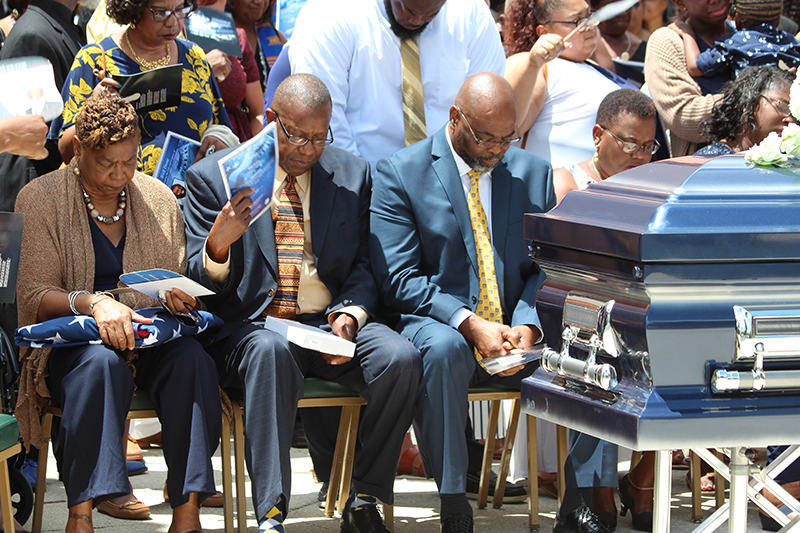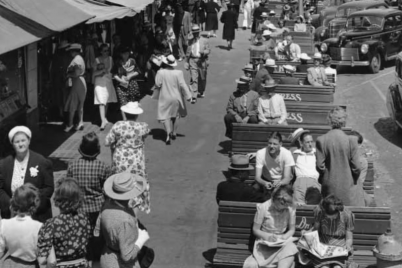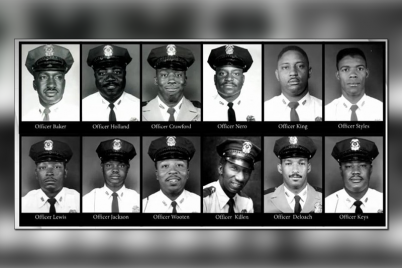Hundreds joined the Crawford family in mourning the loss of Freddie Crawford, who helped changed the face of law enforcement in the United States
BY RAVEN JOY SHONEL, Staff Writer
ST. PETERSBURG — Hundreds of people came to pay their last respects for a man who helped changed the face of law enforcement in the United States last Saturday, June 1 at First Baptist Church.
Freddie Lee Crawford is known locally as the driving force behind the Courageous 12, a group of black police officers who sued the St. Petersburg Police Department and won the right to fully use their powers to arrest any offender, black or white, but his legacy as a trailblazer goes far beyond the Sunshine City.
A year after winning the landmark lawsuit, one of the first of its kind after the passage of the 1964 Civil Rights Act that prohibited discrimination, Crawford moved to Atlanta and worked for the Justice Department. There he worked in conciliatory activities in school desegregation cases throughout the southeastern United States.
Thomas Anthony, Crawford’s younger first cousin, said he was his hero. As a child in rural Georgia in the late 60s, he would start school sometimes as late as October to help bring the crops in. As he was working in the fields, he didn’t know who that man was driving a “green government car,” but he was impressed.
“Up popped this man, this big, black, tall, masculine man who was riding in a car, who was dressed to impress and he was my hero,” said Anthony. “He was what you aspired to be. He left that impression on so many people.”
Crawford made history once again when he was sworn in as the first black corrections director of the Metropolitan Dade County Department of Corrections in 1981. Daniel Junior, the agency’s current director, was one of about 60 current and former co-workers from Miami who came to say goodbye.
Junior met Crawford in the late 1990s during his second stint with the Miami-Dade Corrections Department. Although they did not work together for an extended period of time, he will be forever grateful for Crawford’s trailblazing efforts.
“I stand here today as a direct benefit from his legacy, his pioneership. And I stand before you today as the seventh black department director…”
Anthony Dawsey, another co-worker from the Miami-Dade Corrections Department, said as a boss, Crawford was a “visionary” and a “transformative leader.”
“He seamlessly moved from being the boss to being a friend. He saw me and many other co-workers struggling with substance abuse or addiction and he offered us a second chance.”
Crawford was born Aug. 17, 1937, to Mae Vesta Crawford, née Dowdell, and Moses Crawford in Americus, Ga. The family moved to St. Petersburg, where he received his early education. He graduated from Gibbs High School and earned degrees from Gibbs Junior College, the University of South Florida, New York University and the University of Georgia.
In 1960, he joined the St. Petersburg Police Department. After years of enduring abject racism, only being able to police the black section of town and no career advancement in site, Crawford led the charge to take the police department to court and sue for workplace equality.
Three years later, Crawford, Leon Jackson, the last surviving member of the Courageous 12, and the 10 other fighters of justice won their case in federal court. That decision set a precedent for law enforcement agencies around the nation and paved the way for minorities in the Tampa Bay area.
Goliath Davis, III, St. Pete’s first black police chief, stands on the shoulders of the daring dozen who bravely fought to integrate and dismantle Jim Crow. From the day he was born, Crawford seemed to have a plan for him.
Once Davis returned from college in 1973, Crawford was there to not only congratulate him but to challenge him to join the police department. Twenty-eight years later, Crawford was there at Davis’ retirement party from the force.
“He and the Courageous 12 epitomized community policing. He policed with compassion, he policed with humility and patience, but more importantly, he epitomized what compassion and policing is all about,” he said.
Davis revealed that certain individuals who were running for elected office wanted to use his name and reputation for their political gain. They promised Crawford that they would erect a monument of the Courageous 12 in the lobby of the new police building.
“Those were promises made, but to my knowledge as I stand before you today, they were also promises not kept,” he declared. “That promise was made, and it’s our duty to make sure that promise is kept.”
Maria Scruggs, president of the St. Petersburg Branch NAACP called herself one of Crawford’s law enforcement daughters because he convinced her father that her becoming a police officer was a good idea.
About 20 acknowledgments and resolutions came in from agencies and cities all over Florida including Orlando, Opa-locka and Miami. Dr. Tonjua Williams, president of St. Petersburg College, read a proclamation from Mayor Rick Kriseman and read one from the Board of County Commissioners, where it was declared June 1, 2019, as Freddie Crawford Day.
Rev. Wayne Thompson, senior pastor of Frist Baptist Institutional, gave the eulogy, stating that “it’s a good thing if we can remember what Freddie did, after today you’ve got to be intentional that he’s not forgotten.”
Thompson said with Crawford and other black officers’ community policing, his life of crime was cut short. He encouraged the Crawford family to tell his story of sacrifice, and urged the elders in the community to let the younger generations know “what used to be so that they can appreciate what is now.”
Along with the family, mourners included 78-year-old Jackson, the last living member of the Courageous 12, Mayor Kriseman, Pinellas County Commissioner Ken Welch, St. Petersburg Police Chief Anthony Holloway and retired Assistant Police Chief Cedric Gordon.
Crawford was sent off with a 21-gun salute by the Miami-Dade Corrections Honor Guard.
In a resume written by Crawford 10 years ago, he said it best when reflecting on a life well-lived:
“These are but a few, a very few, of the hundreds, no thousands of occurrences that were instrumental in my development into the total man I am today. And at 71 years of age, I can truly say that all of the foregone have been with the constant guidance of, and with prayers to, and the blessings of GOD.”









